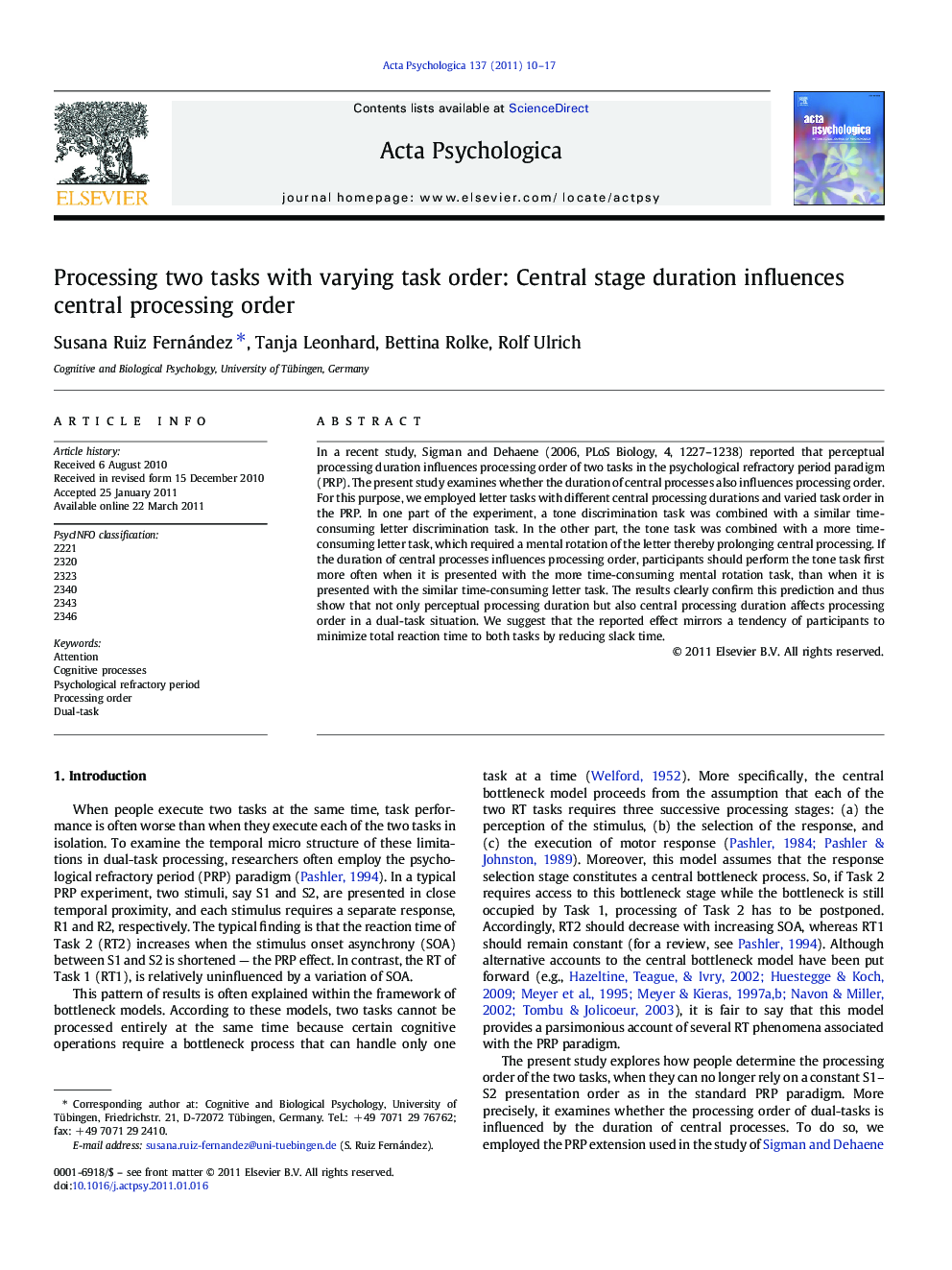| Article ID | Journal | Published Year | Pages | File Type |
|---|---|---|---|---|
| 920149 | Acta Psychologica | 2011 | 8 Pages |
In a recent study, Sigman and Dehaene (2006, PLoS Biology, 4, 1227–1238) reported that perceptual processing duration influences processing order of two tasks in the psychological refractory period paradigm (PRP). The present study examines whether the duration of central processes also influences processing order. For this purpose, we employed letter tasks with different central processing durations and varied task order in the PRP. In one part of the experiment, a tone discrimination task was combined with a similar time-consuming letter discrimination task. In the other part, the tone task was combined with a more time-consuming letter task, which required a mental rotation of the letter thereby prolonging central processing. If the duration of central processes influences processing order, participants should perform the tone task first more often when it is presented with the more time-consuming mental rotation task, than when it is presented with the similar time-consuming letter task. The results clearly confirm this prediction and thus show that not only perceptual processing duration but also central processing duration affects processing order in a dual-task situation. We suggest that the reported effect mirrors a tendency of participants to minimize total reaction time to both tasks by reducing slack time.
Research Highlights► Influence of duration of central processes on processing order in a PRP task. ► We combine two tasks with different central processing duration and vary task order. ► A tendency to prioritize the task with shorter processing duration is found. ► Results suggest that participants tend to minimize total reaction time to both tasks.
